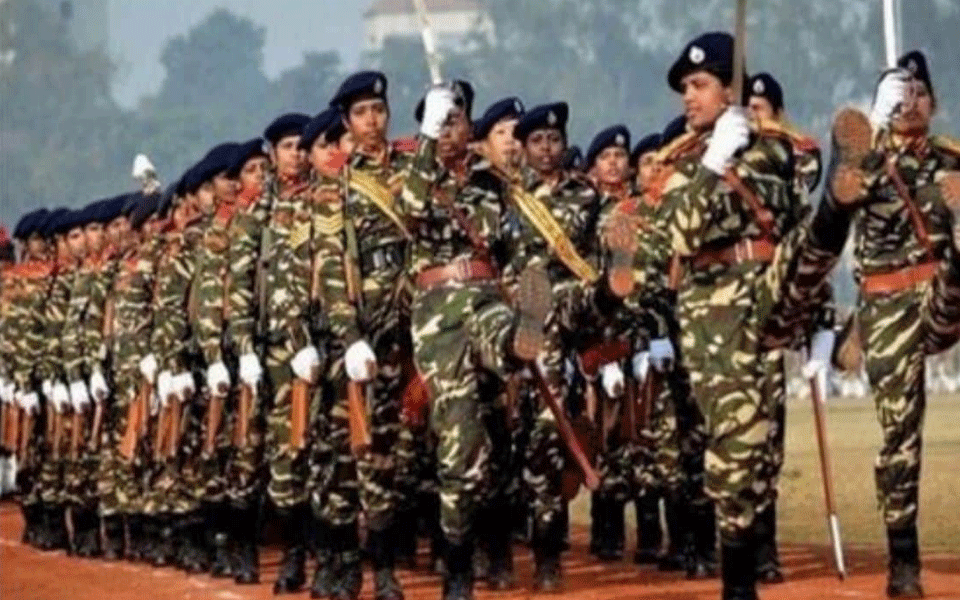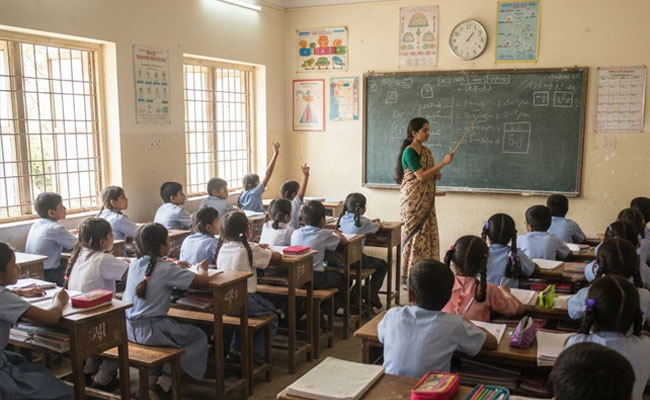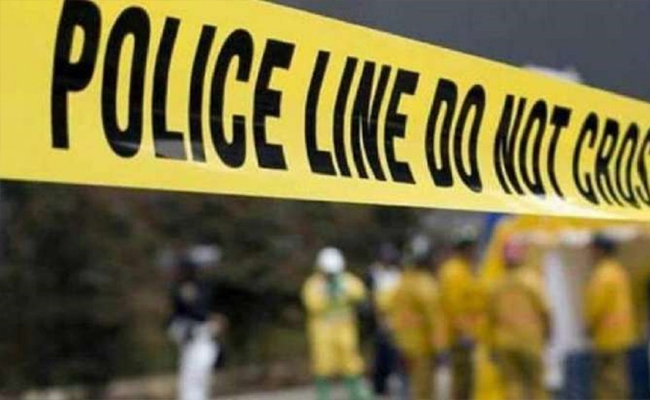Gurgaon: A maiden contingent of 34 CRPF women personnel was on Saturday inducted into its specialised jungle warfare commando force CoBRA, which will soon be deployed in the anti-Naxal operations grid of the country.
The Commando Battalion for Resolute Action (CoBRA) was raised under the CRPF in 2009 for undertaking intelligence-based jungle warfare operations. It has been an all-male affair for this unit till now.
The majority of CoBRA teams, whose commandos are expected to have tough mental and physical attributes, are deployed in various Maoist violence affected states while a few are based in the northeastern states for undertaking counter-insurgency operations.
A ceremonial event was held at the forces' camp in Kadarpur village here with CRPF Director General A P Maheshwari witnessing combat drills performed by the chosen women as he underlined that it was important to defeat gender-based beliefs and stereotypes.
The personnel, earmarked for CoBRA, have been chosen from the existing six all-women battalions of the force, a Central Reserve Police Force (CRPF) spokesperson said.
"These women will undergo a pre-induction training for three months and subsequently will be embedded with CoBRA units deployed in Naxal violence affected districts of Chhattisgarh like Sukma, Dantewada and Bijapur," the spokesperson said.
An all-women brass band of the country's largest paramilitary was also commissioned during the ceremony that was held to mark the 35th Raising Day anniversary of its first women battalion.
The first battalion, numbered 88, was raised this day in 1986 at a CRPF base in Delhi and the force now has six such units with just over 1,000 personnel in each.
They are deployed for rendering various kinds of law and order duties across the country. The CRPF also has an all-women pipe band that was raised in 2012.
Maheshwari lauded the women, saying they are an inspiration for numerous young girls who aspire to do good for themselves and the country. He said these combatants have proved that power is not in the muscles but in the head.
"I consider it the failure of leadership if someone says that one cannot do a work that is being done by the other. It is our responsibility to ensure that every effort is made to bring all the personnel to the same level of efficiency.
"Women warriors can use their strengths in the operational areas where the force is working," Maheshwari said addressing the troops.
He urged the women personnel to "make their place" in the families of those youth who have gone astray or away from the national mainstream and help in bringing them back.
He said the new age warfare is asymmetric, proxy, radicalisation-based, cyber-centric and has "shifted" from the geographical to the human terrain.
"ISIS (the banned global terror group) didn't require to physically cross the border but capture the mind of a Bengaluru techie (to carry out nefarious designs)...every citizen is a soldier and every soldier is a citizen," the CRPF chief said.
He said women personnel can also play an important role in countering the activities of "sleeper cells" and other such elements.
The CRPF, with a strength of about 3.25 lakh personnel, is designated as the lead internal security combat unit with its maximum deployment in three major theatres of Jammu and Kashmir, Left Wing Extremism affected states and insurgency-hit areas on India's northeast.
Let the Truth be known. If you read VB and like VB, please be a VB Supporter and Help us deliver the Truth to one and all.
Chennai (PTI): Afghanistan skipper Rashid Khan called for more bilateral series against stronger cricketing nations after his team signed off from the T20 World Cup on a high, defeating Canada in their final group match here on Thursday.
Afghanistan played some exhilarating cricket, going down to South Africa in a gripping second Super Over after the scores were tied, a humdinger that provided one of the early thrills of the World Cup.
However, the spin-bowling stalwart said Afghanistan could make significant strides if they get regular opportunities to compete against stronger cricketing nations.
"Couple of areas to improve, with the batting, the middle order got a bit stuck against the big teams, and then with the bowling the death overs. That comes when you play the bigger teams in bilateral series," said Rashid after his team defeat Canada by 82 runs, with him returning excellent figures of 2 for 19.
The stalwart said the side had arrived well prepared for the tournament and produced some breathtaking cricket, but admitted the narrow defeat to South Africa proved costly and remained a painful setback.
"We were well-prepared (for the tournament), we played some unbelievable cricket. The game against South Africa, that really hurt everyone. We had to win one of those (first two) games and see how the tournament unfolded. We'll take some positive things from this World Cup and look forward," he said.
With head coach Jonathan Trott set to part ways with the team, Rashid described the departure as an "emotional" moment for the side.
"I think we had some wonderful times with him. Where we are now, he played a main role. It's emotional to see him leave us, but that's how life is. We wish him all the best and somewhere down the line we see him again."
Ibrahim Zadran, who was named Player of the Match for his unbeaten 95 off 56 balls, said it was satisfying to finally register a substantial score after two below-par outings.
"I enjoyed it, didn't play better cricket in first two innings, which I expect. Wanted to back my skills, really enjoyed it. Pressure was there, it's there all the time. I want to put myself in pressure situations and enjoy it," said Zadran.
"Wanted to play positive cricket, rotate strike and punish bad ball, create partnerships and this is what I have done."





